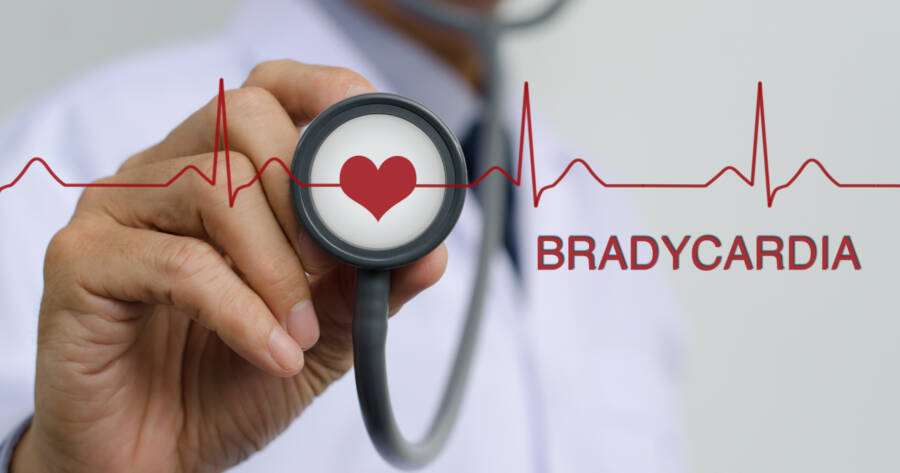Bradycardia, a condition characterized by a slower-than-normal heart rate, may signal an underlying health issue. How can you know if you have it? Fortunately, if you start a search online, you can recognize the signs and symptoms of bradycardia.
A slower heart rate can be a sign of efficient heart function in some individuals, particularly athletes. However, it can also be a problem that requires timely medical intervention and management. Read on to explore symptoms and treatment options!
Bradycardia Definition
Bradycardia occurs when the heart rate drops below 60 beats per minute. While sometimes a marker of good health, it can also indicate problems with the heart’s electrical system.
Understanding the nuances of bradycardia is essential for distinguishing between healthy and concerning heart rates. Researching the condition online can provide valuable insights into when a slow heart rate is a sign of efficiency versus a health concern.
Signs and Symptoms to Watch For
Common symptoms of bradycardia include:
Fatigue
Fatigue associated with bradycardia is more than just feeling tired. It’s a pervasive sense of exhaustion that doesn’t improve with rest. This occurs because a slower heart rate may mean less oxygen-rich blood is circulating through the body, leading to reduced energy levels.
Dizziness
Dizziness in bradycardia patients can range from mild unsteadiness to severe vertigo. This symptom arises because the brain may not receive enough blood, impairing its functions.
Shortness of Breath
Shortness of breath, or dyspnea, in bradycardia, can occur even during light activities or at rest. It’s a feeling of being unable to take a deep, satisfying breath. This happens as the body struggles to deliver enough oxygen to meet its needs due to the slow heartbeat.
Chest Pain
Chest pain in bradycardia can range from a dull ache to sharp pains. It happens as the heart might struggle to pump blood effectively, causing discomfort or pain in the chest area. Differentiating this pain from other types, such as that associated with digestive issues or muscle strain, can be better understood through online medical resources.
Confusion
Confusion or memory issues in bradycardia patients stem from reduced blood flow to the brain. Patients might experience difficulty concentrating, memory lapses, or a feeling of mental ‘fogginess.’
Fainting Spells
Fainting spells, or syncope, in bradycardia, occur when the brain does not receive enough blood to maintain consciousness. These can be sudden and without warning, leading to falls and injuries.
Recognizing these symptoms early and understanding their specifics can lead to prompt and effective treatment for bradycardia. Online resources can be invaluable in providing a deeper understanding of these symptoms and their implications in the context of this condition.
Causes of Bradycardia
Various factors, including heart disease, certain medications, and thyroid disorders, can cause bradycardia. Even electrolyte imbalances can impact heart rate.
Understanding these causes is vital for both prevention and treatment strategies. Online resources can offer a broader perspective on how these factors interact with heart health.
When to Seek Medical Attention
If bradycardia is accompanied by severe symptoms like fainting or chest pain, immediate medical attention is necessary. Even in the absence of severe symptoms, a consultation with a healthcare provider is advisable for persistent or concerning signs.
Timely medical intervention can prevent complications and improve outcomes. Delving into online medical resources can provide guidance on when to seek professional advice.
Diagnosis of Bradycardia
To diagnose bradycardia, doctors typically use electrocardiograms (ECGs) to monitor heart rate and rhythm. Blood tests and other diagnostic tools may also be employed to identify underlying causes.
Understanding the diagnostic process can help patients better prepare for medical consultations. Online platforms offer detailed explanations of these diagnostic methods and their importance.
Treatment Options
Treatment for bradycardia depends on the underlying cause. It may range from medication adjustments to the implementation of a pacemaker.
Each treatment option has its specific indications and considerations. Researching these treatments online can provide patients with a clearer picture of what to expect and how to manage their condition effectively.
Lifestyle and Management
The following lifestyle changes can have a significant impact on heart health and potentially improve bradycardia:
Regular, Moderate-Intensity Exercise
Cardiovascular exercises such as brisk walking, cycling, and swimming are particularly beneficial. These activities strengthen the heart muscle and improve its efficiency, potentially alleviating some bradycardia symptoms.
Heart-Healthy Diet
A diet rich in fruits, vegetables, whole grains, lean proteins, and healthy fats (such as those found in fish, nuts, and olive oil) is ideal. These foods are high in essential nutrients and low in unhealthy fats and processed sugars, supporting overall heart health.
Stress Management Techniques
Chronic stress can adversely affect heart health, potentially worsening bradycardia symptoms. Managing stress is crucial for maintaining a healthy heart rate and overall well-being. Consider practices such as mindfulness meditation, yoga, and deep breathing exercises.
Regular check-ups and monitoring are also crucial for managing the condition effectively.
Invest in Your Heart’s Health
Bradycardia, while often benign, can also be a sign of more serious health issues. Recognizing its signs and symptoms, understanding the causes, and knowing when to seek medical attention are key to managing this condition.
The internet is a rich resource for expanding one’s knowledge about bradycardia, offering a wealth of information that can empower patients and caregivers alike in dealing with this heart condition. By investigating your own heart health, you can determine if a slow heart rate is benign or a condition like bradycardia.
